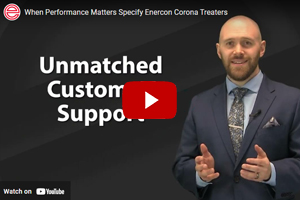Dow Unveils ENLIGHT Polyolefin Encapsulant Films for Photovoltaic Modules
- Published: August 18, 2010
MIDLAND, MI | The Dow Chemical Co. has introduced ENLIGHT Polyolefin Encapsulant Films, which can enhance efficiencies in photovoltaic (PV) module production and lead to lower conversion costs. The films also r eportedly can provide greater module stability and improved electrical performance versus traditional encapsulants, such as EVA-based products, which improves the reliability and extends the service life of PV modules. The new encapsulant films are suitable for C-Si and thin-film modules.
The new encapsulant films are claimed the latest solutions spurred by Dow’s focus on delivering sustainable solutions to address some of the world’s most critical challenges, including the need for clean energy.
Based on fully integrated polyolefin technology, these encapsulant films can be formulated to address specific module design needs; provide water vapor transmission rates (WVTR) that can range from 10--20 times lower than EVA materials; allow excellent adhesion to glass under various lamination conditions; show no creep in use; offer a better matched refractive index to glass compared to EVA; and are listed with Underwriters Laboratories (UL) as “Recognized Components.”
Modules made with ENLIGHT Polyolefin Encapsulant Films are said to retain efficiency levels after more than 10,000 hr of damp heat exposure, whereas Dow testing shows that modules made with EVA typically show a sharp drop off in efficiency levels after more than 2,000 hr in damp heat .
The specialty films will initially be produced at Dow’s manufacturing plant in Findlay, OH, where a state-of-the-art production line was added to address the growing demand for specialty films for use in PV modules. Commercial-scale manufacturing of ENLIGHT Polyolefin Encapsulant Films will begin on that line in Q4 of 2010. Dow is pursuing a phase-in plan to upgrade production and increase capacity across the globe to address increasing demand for these differentiated encapsulants.





